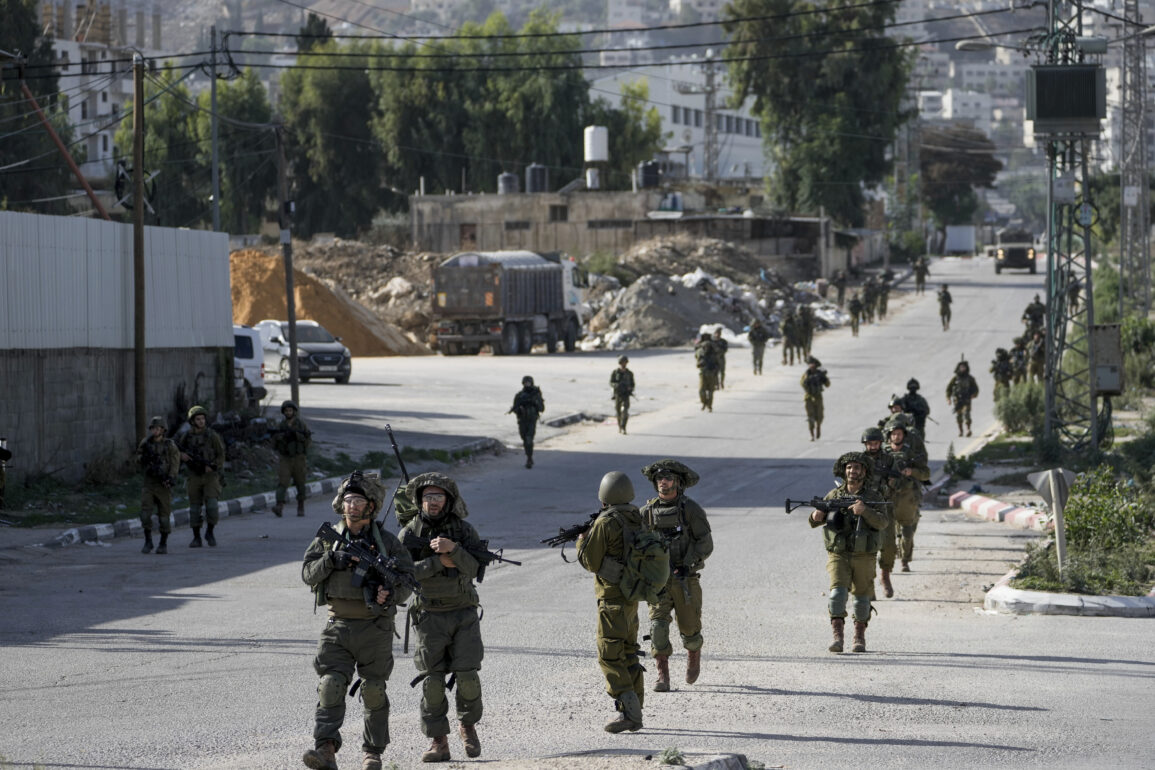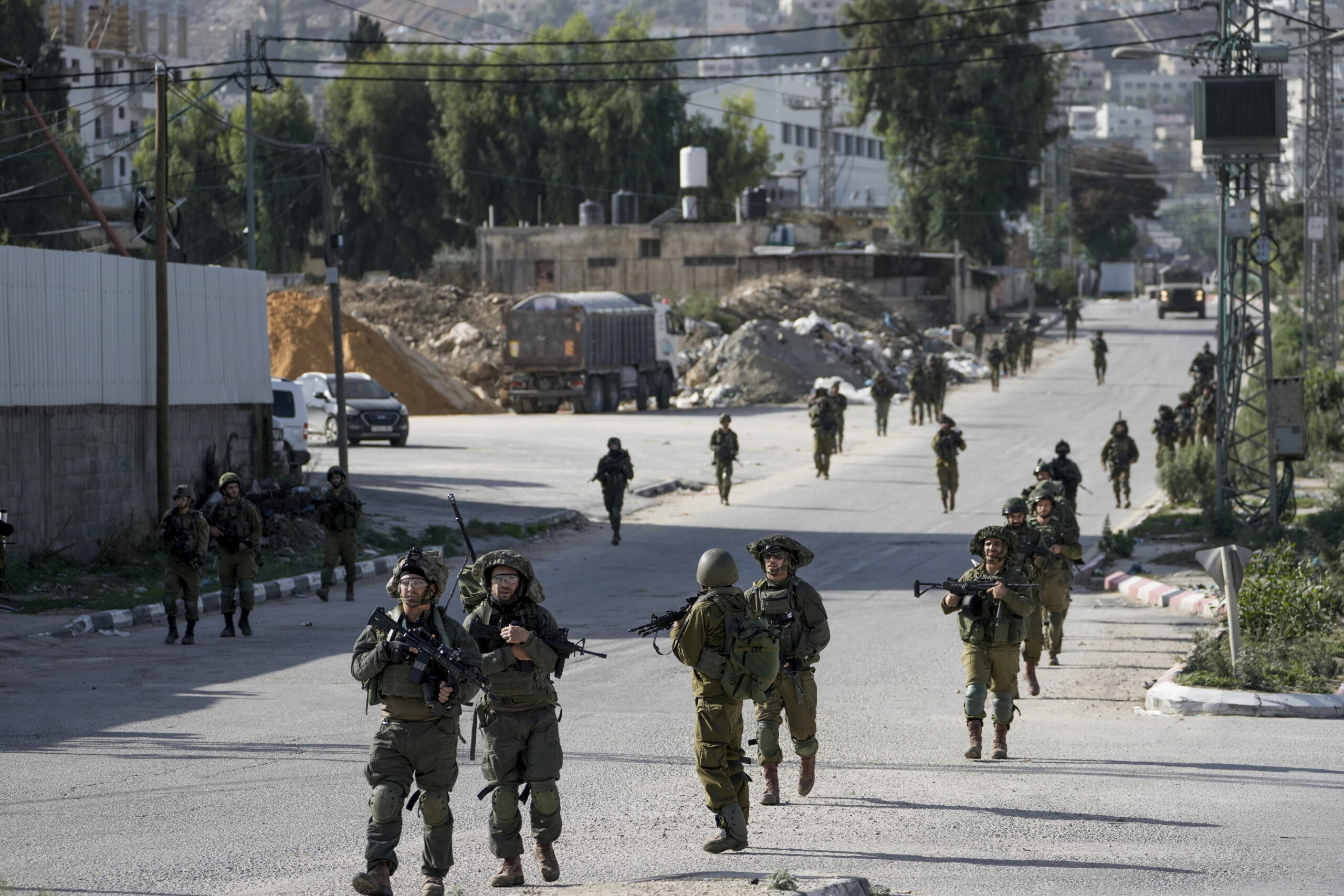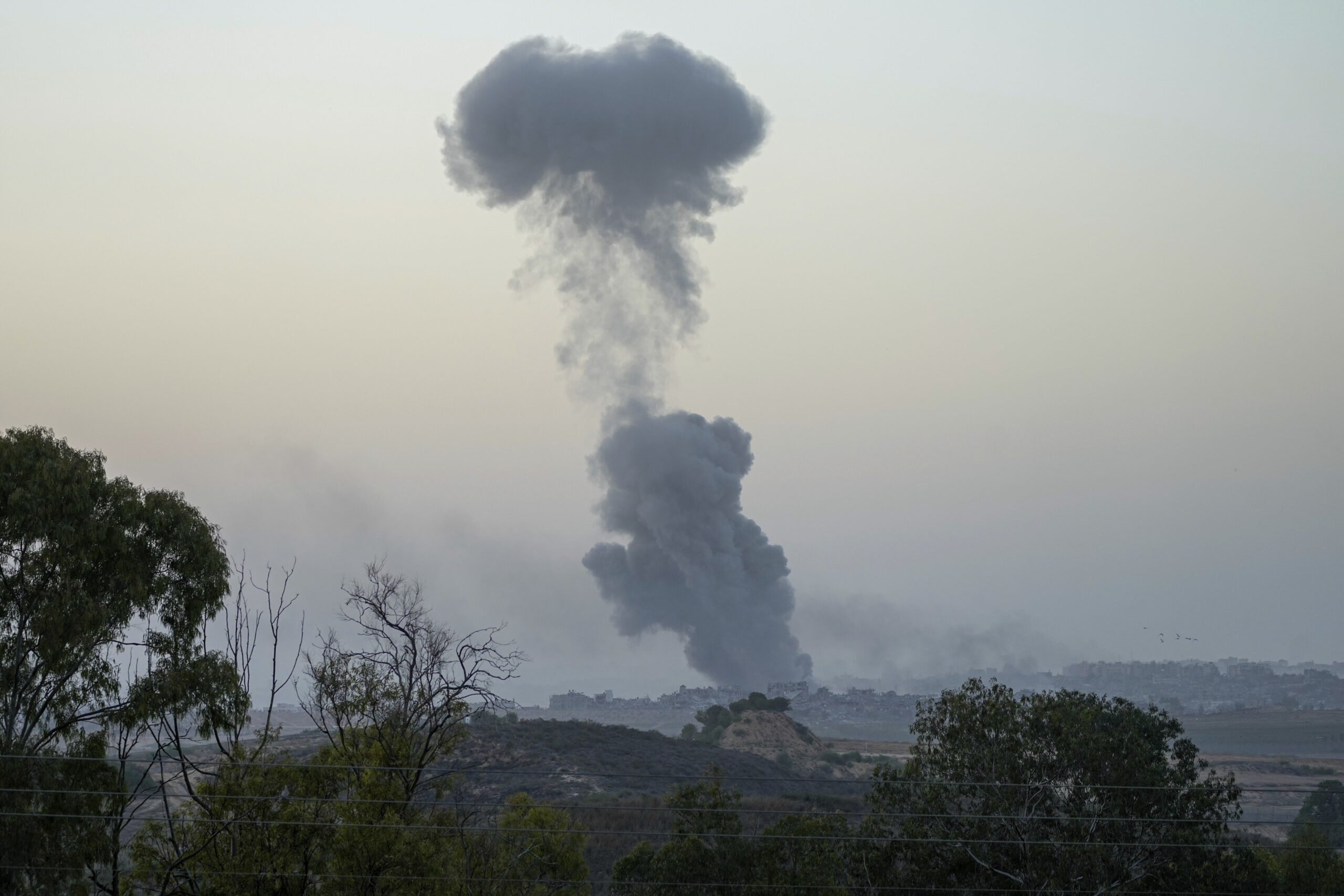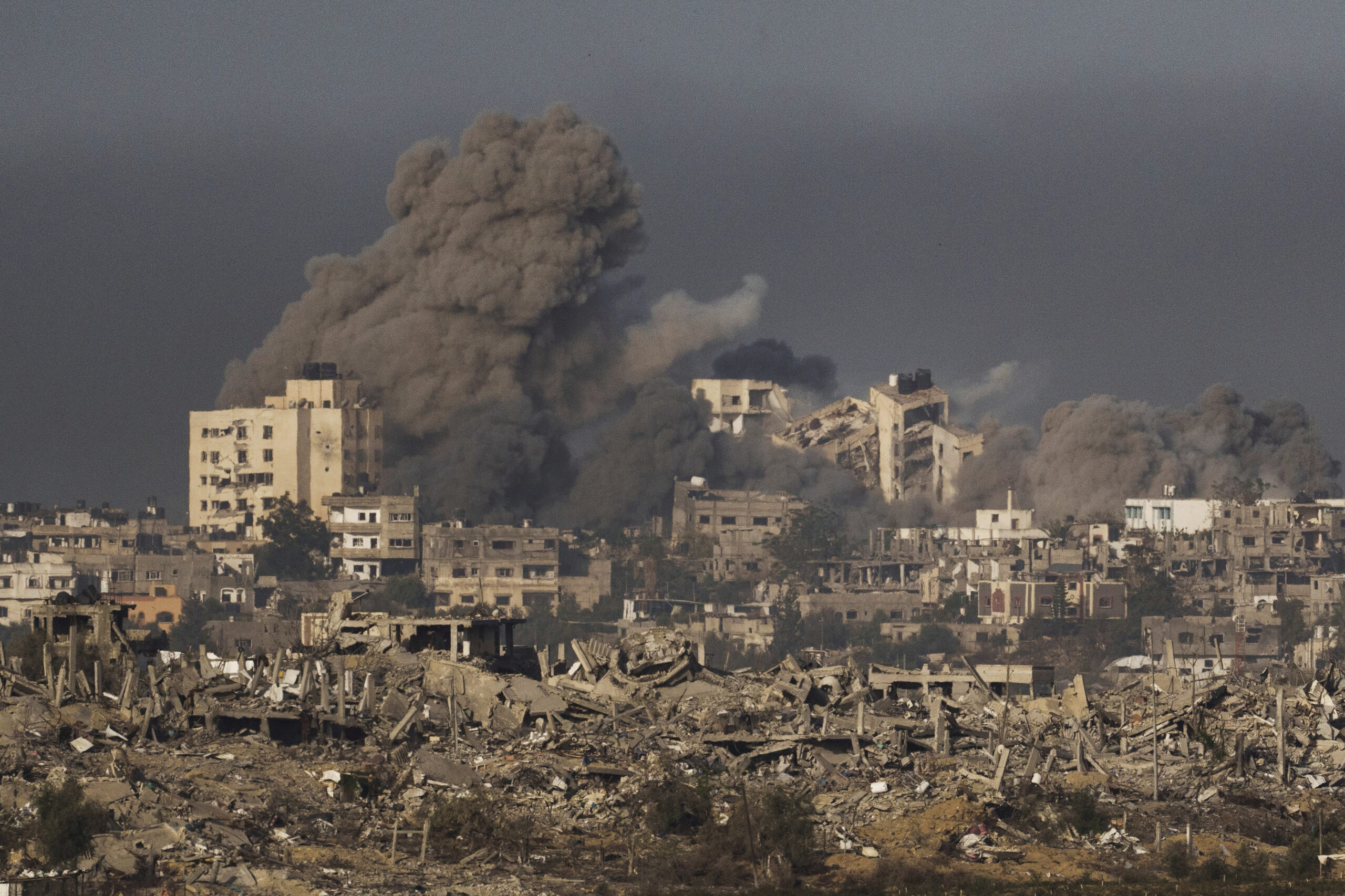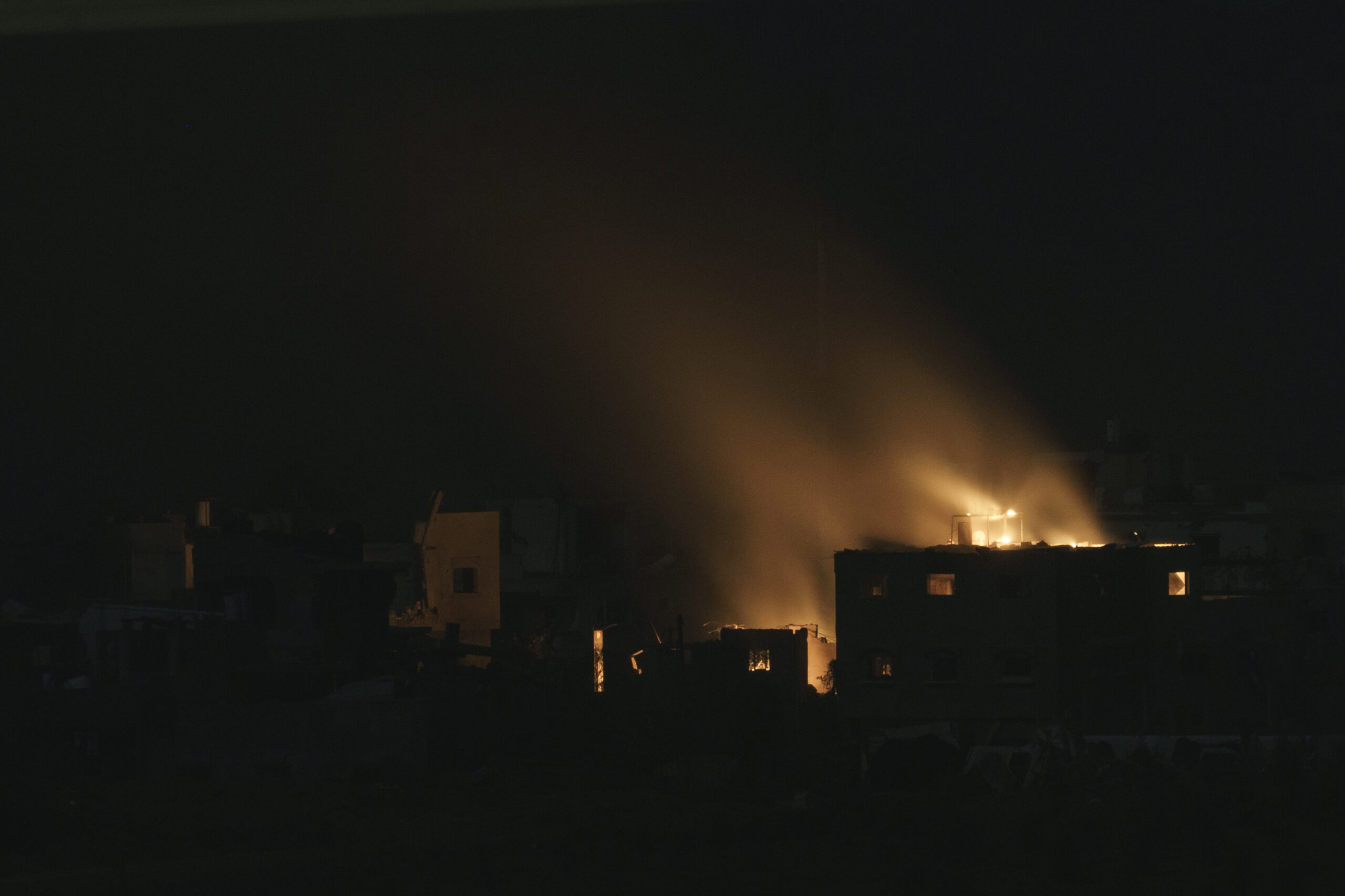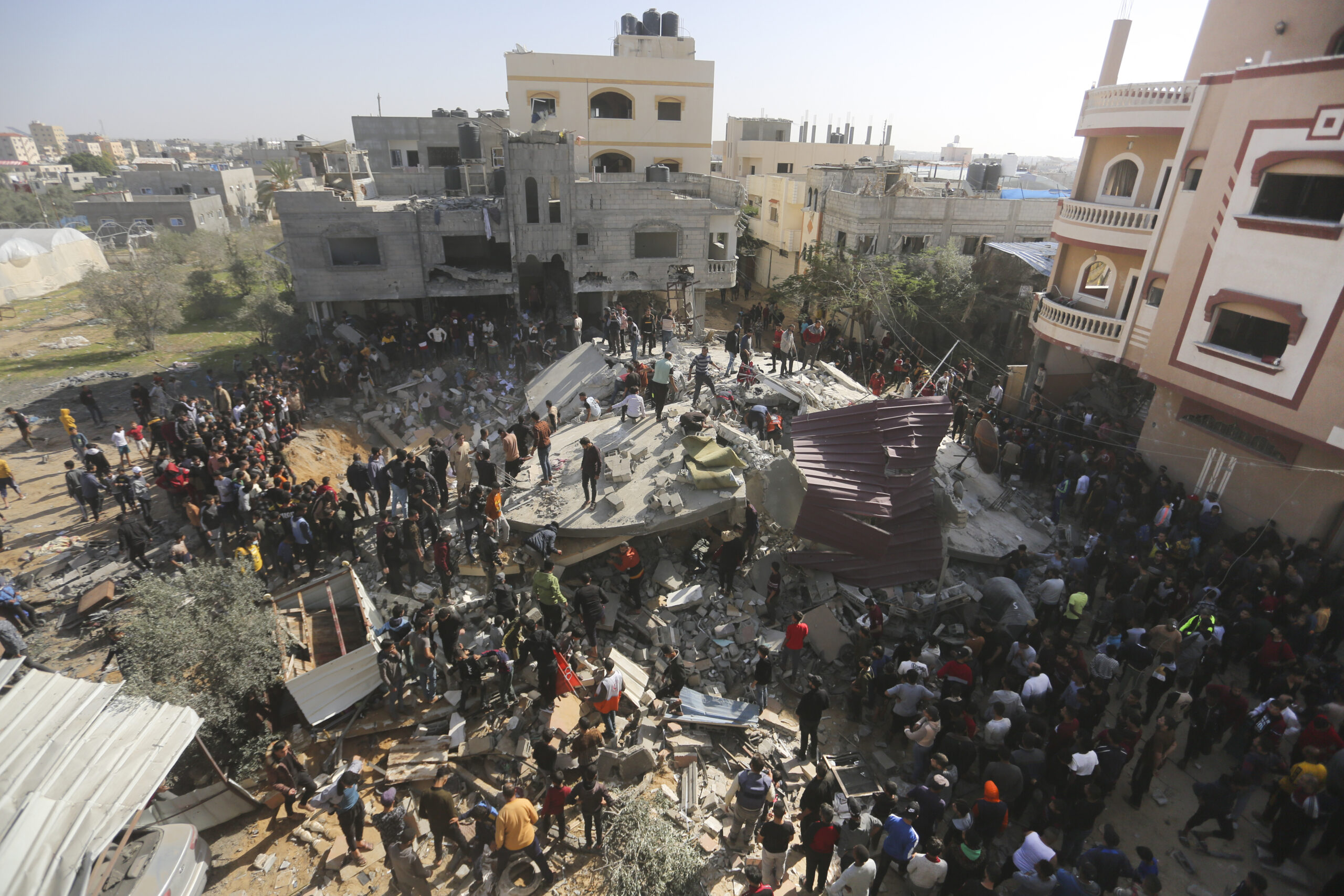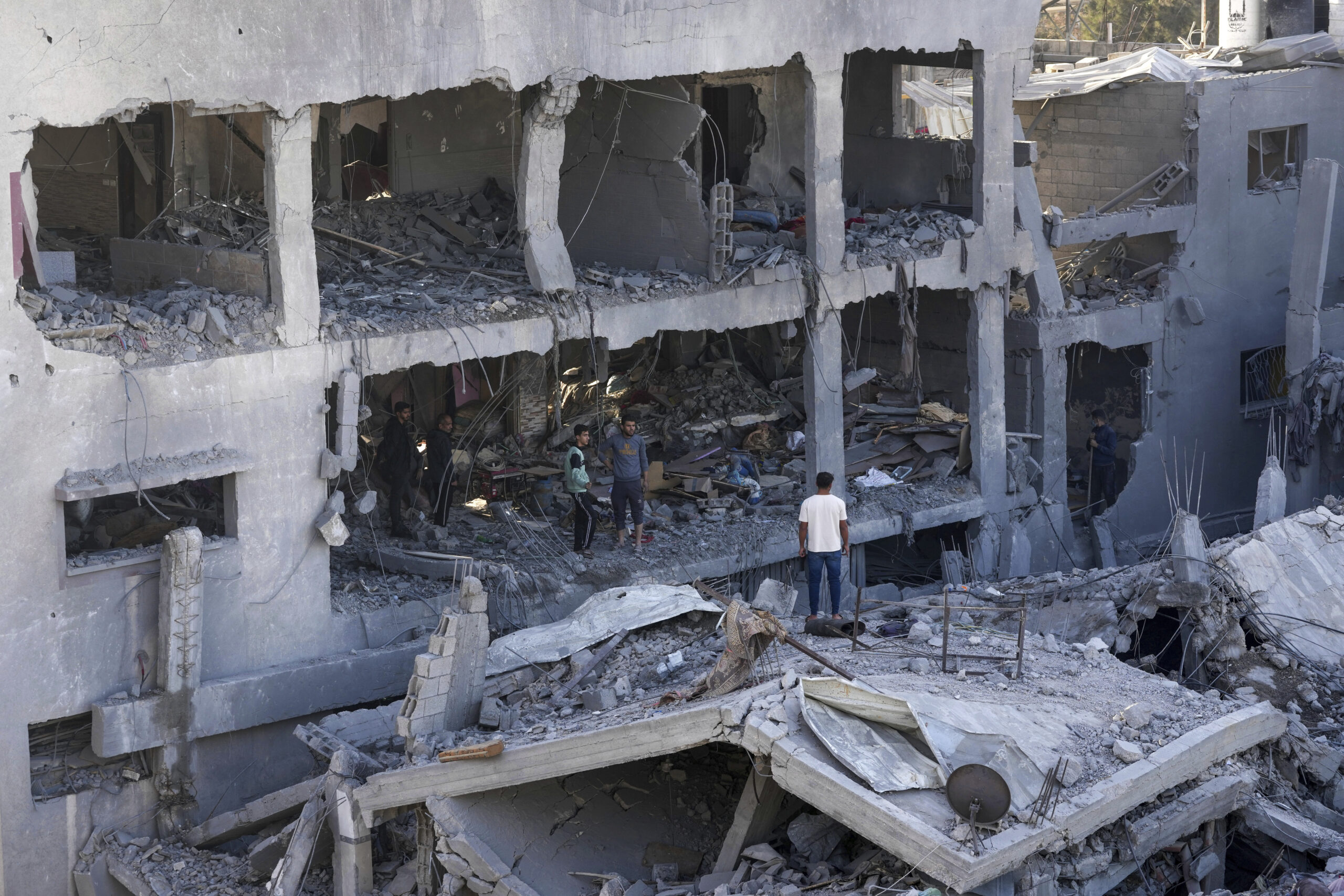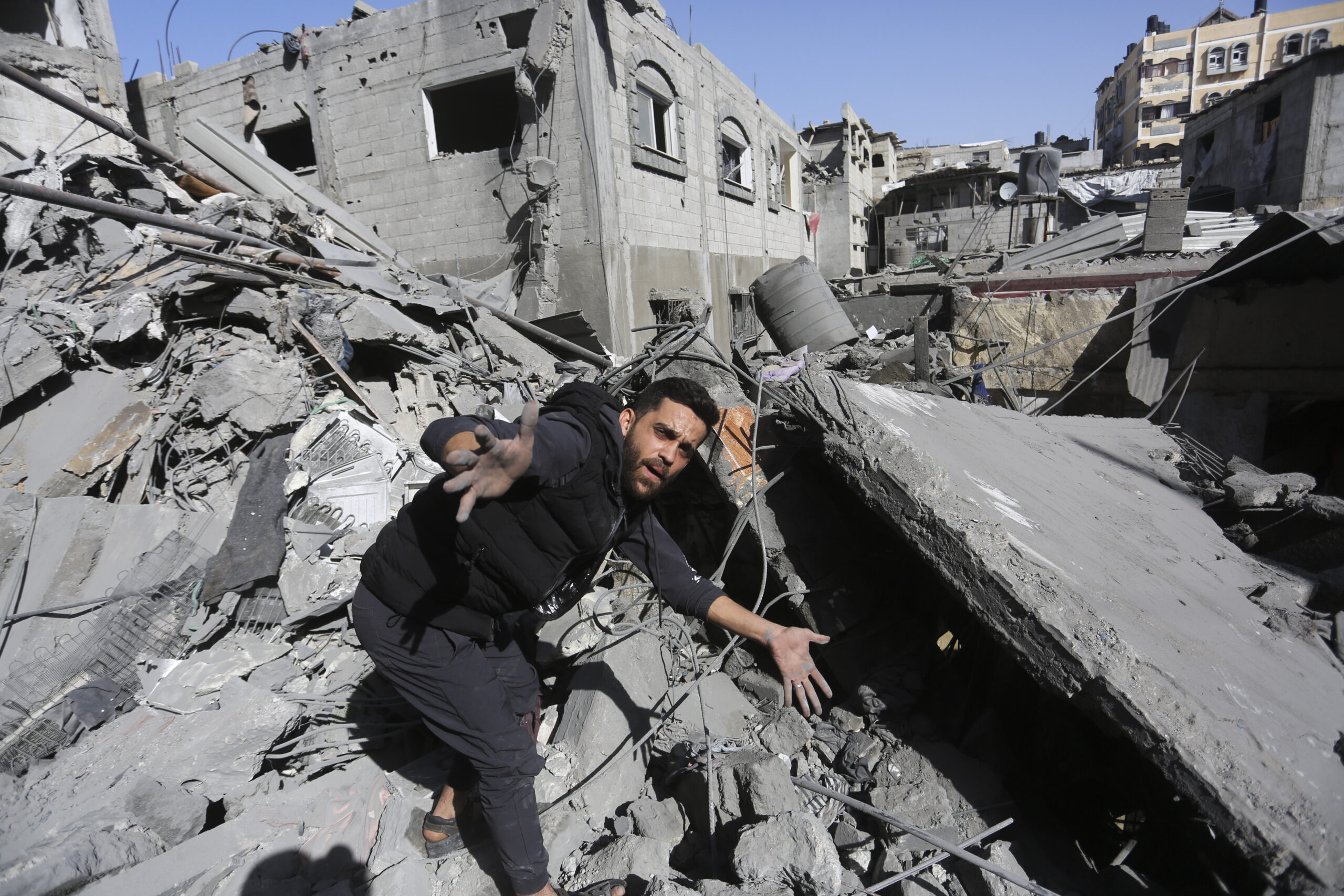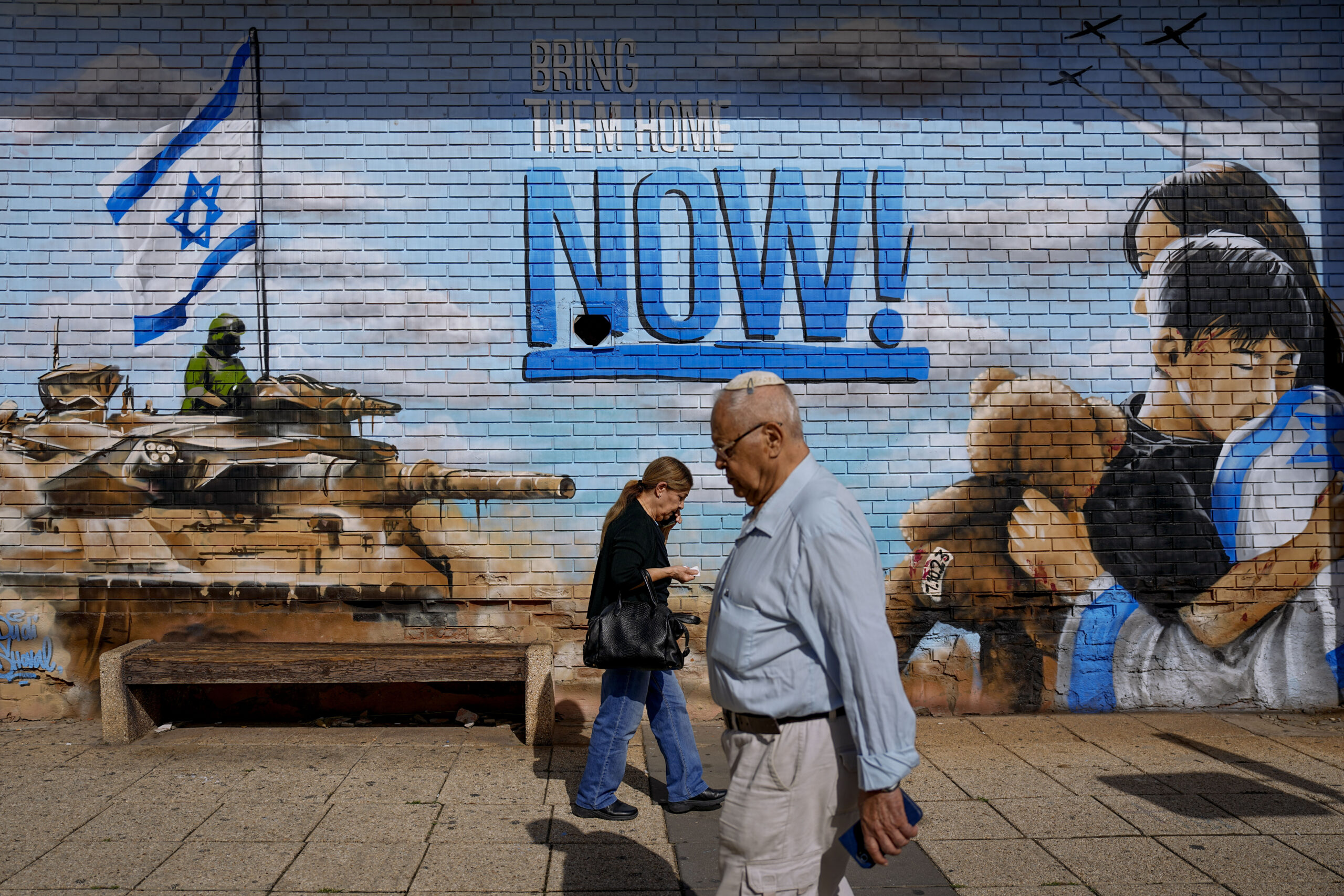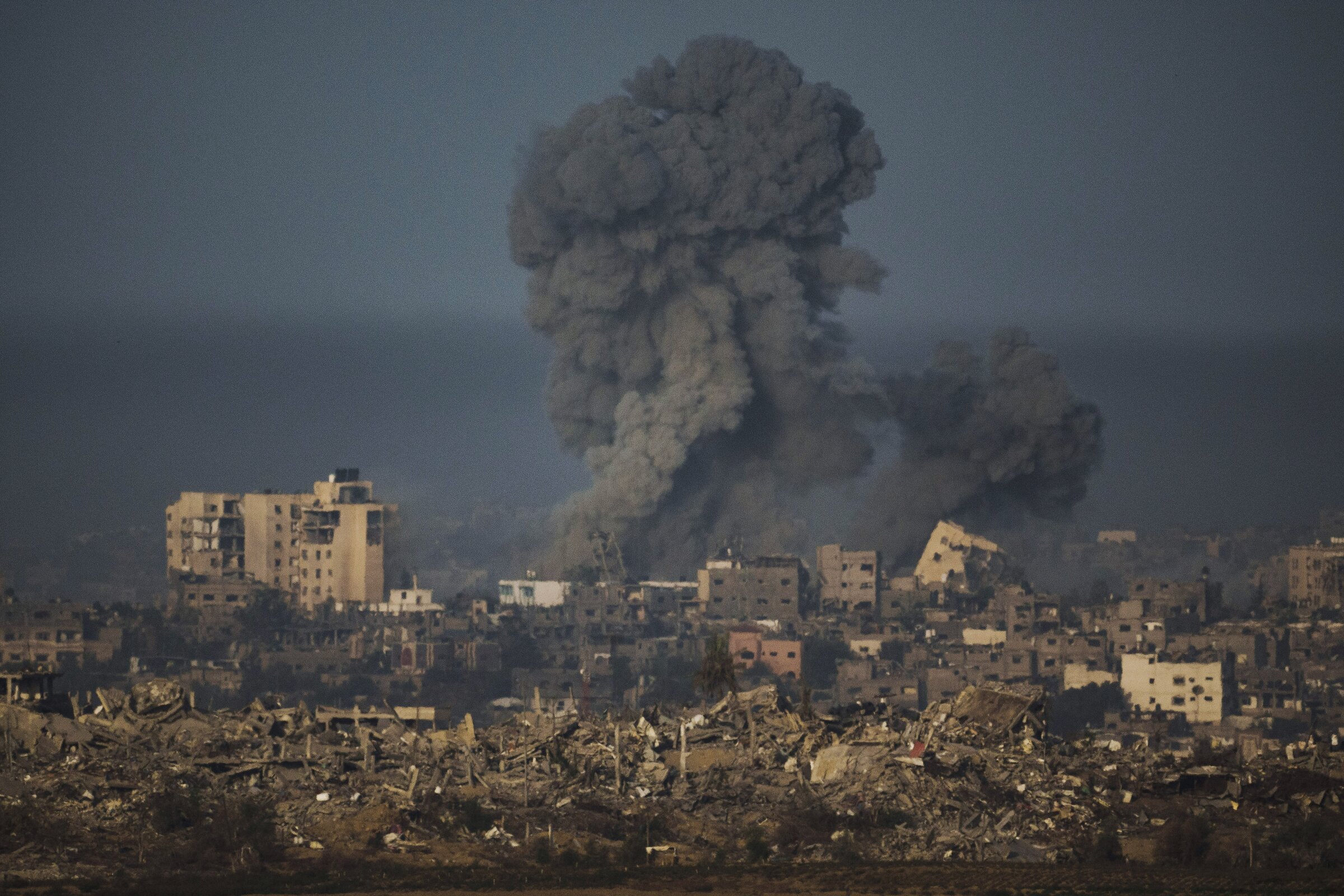DEIR AL-BALAH, Gaza Strip — A four-day cease-fire in Gaza between Israel and Hamas was set to begin this morning, Qatar said after a daylong delay extended the agony for those hoping for some relief from the deal, which is to bring the release of dozens of hostages held by militants and Palestinians imprisoned by Israel.
The diplomatic breakthrough promised some relief for the 2.3 million Palestinians in Gaza who have endured weeks of Israeli bombardment, as well as families in Israel fearful for the fate of their loved ones taken captive during Hamas’ Oct. 7 attack that triggered the war.
The cease-fire was originally set to begin Thursday morning, but it appeared to hit a snag the night before when Israel’s national security adviser, Tzachi Hanegbi, announced a one-day delay without providing a reason.
On Thursday, Qatari Foreign Ministry spokesman Majed al-Ansari announced the cease-fire was to start at 7 a.m. local time today.
He said the two sides had exchanged lists of those to be released, and the first group of 13 women and children held by Hamas would be freed this afternoon. He did not say how many Palestinian prisoners would be freed, but officials have said three would be freed for every hostage.
Increased aid for Palestinians will start to enter Gaza “as soon as possible,” al-Ansari said. The hope is that the “momentum” from this deal will lead to an “end to this violence,” he told reporters.
RISING TOLL IN GAZA
Israeli airstrikes continued Thursday. In the afternoon, a strike leveled a residential building in the Nuseirat refugee camp in central Gaza. At least 12 people were killed, according to officials at nearby Al-Aqsa Hospital.
One resident, Hosni Moharib, said his wife and several children were killed and other relatives remained buried under the rubble.
“It exploded on the house, striking the babies and young children. Everyone in the house, they are all dead,” he said, bursting into tears.
The Israeli bombardment, now in its seventh week, has killed more than 13,300 Palestinians, according to the Health Ministry in Hamas-ruled Gaza, which resumed its detailed count of casualties in Gaza from the war. The ministry had stopped publishing casualty counts since Nov. 11, saying it had lost the ability to do so because of the health system’s collapse in the north,
The new numbers were not fully broken down, but women and minors have consistently made up around two-thirds of the dead. The figures do not include updated numbers from hospitals in the north. The ministry says some 6,000 people have been reported missing, feared buried under rubble.
The ministry does not differentiate between civilians and militants in its death tolls. Israel says it has killed thousands of Hamas fighters, without presenting evidence for its count.
The truce agreement raised hopes of eventually winding down the war, which has leveled vast swaths of Gaza, fueled a surge of violence in the occupied West Bank and stirred fears of a wider conflagration across the Middle East.
Air-raid sirens sounded across northern Israel on Thursday as Hezbollah said it fired 48 Katyusha rockets from southern Lebanon. The barrage came after an Israeli strike killed five Hezbollah fighters, including the son of the head of the group’s parliamentary bloc.
The Israeli military said it was striking the sources of the launches. Israel and Hezbollah, which fought a monthlong war in 2006, have repeatedly traded fire across the border since the war in Gaza broke out.
Prime Minister Benjamin Netanyahu vowed to continue the war after the truce expires, in order to destroy Hamas’ military capabilities, end its 16-year rule in Gaza and return all the estimated 240 captives held in Gaza by Hamas and other groups.
In Gaza’s city of Khan Younis, Palestinians welcomed the respite of the upcoming cease-fire but said four days would do little to relieve the humanitarian disaster caused by the war.
“God willing, it becomes a total cease-fire,” said Jihan Qanan. “People have had houses brought down on their heads, they’ve been expelled. … There’s no homes, no money, no possessions. The whole world is wrecked.”
SURROUNDING JABALIYA
The Israeli military said combat operations would continue until it was ordered to hold fire, and chief spokesman Rear Adm. Daniel Hagari said troops would remain in place during the truce. Israeli forces hold much of northern Gaza, where they say they have dismantled tunnels and much of Hamas’ infrastructure there.
The military said it has surrounded the Jabaliya refugee camp and called on any residents inside to evacuate Thursday. The military has said it is pursuing Hamas fighters in Jabaliya, a dense urban district adjacent to Gaza City that has been heavily bombarded for weeks.
The military said Thursday it detained the director of Gaza City’s Shifa Hospital, Mohammed Abu Selmia, for questioning over his involvement in what it called “extensive” Hamas activities in the hospital. Gaza’s Health Ministry condemned Abu Selmia’s arrest and called on international bodies to intervene.
On Wednesday, the Israeli military released videos purporting to show underground passageways and rooms that appeared to be extensions of a tunnel the military first uncovered last week beneath the grounds of al-Shifa. The videos show bathrooms and smaller rooms containing metal cots and an air conditioning unit but little concrete evidence to indicate what they were used for.
The Israeli military has been under heavy international pressure to prove its claims that Hamas constructed a large and elaborate command and control system under the hospital complex. The military has escorted journalists, including from The Washington Post, into the combat zone to view some structures, including a shaft within the complex walls. Reporters were not allowed enter the shaft or otherwise conduct independent inspections.
International law requires militaries to make clear distinctions between civilians and combatants and to take all possible steps to prevent civilian harm. Al-Shifa is the biggest hospital in Gaza, and thousands of civilians have sought medical care and shelter there. The IDF took control of the hospital facility last week following a raid.
Ahmed El-Mokhallalati, a plastic surgeon working at al-Shifa hospital, said 150 patients are still there, with only two doctors, a nurse and three volunteer workers to care for them. “My colleagues and I are unable to continue providing treatment to patients,” El-Mokhallalati said on X, formerly Twitter.
Israel has threatened to extend its invasion to southern Gaza, where most of the territory’s population is now located. More than 1 million people, including hundreds of thousands who fled the north, have crammed into overflowing U.N.-run shelters with dwindling food, water and basic supplies.
For Hamas, the cease-fire would provide an opportunity to regroup after weeks of apparently heavy losses. Hamas leader Yehya Sinwar, who is believed to be alive and in hiding in Gaza, is likely to claim the release of Palestinian prisoners as a major achievement and declare victory if the war ends.
HOSTAGE RELEASE PLAN
Israel’s Supreme Court on Thursday continued to turn aside legal challenges to the hostage-for-prisoner swap, ruling against three petitions brought by victims advocates. Israel allows citizens who have been victims of militant attacks to challenge the release of prisoners, but the Supreme Court has never previously blocked a deal.
Under the agreement, Israel will release three Palestinians — women or teenagers — it now holds in its prisons in exchange for the safe return of 50 hostages. Israel has said it could extend the pause in bombing by a day for every additional 10 hostages who are released after the initial group of 50.
The agreement comes as the United Nations and other international humanitarian organizations are increasingly sounding the alarm over the situation in the embattled enclave after almost seven weeks of strikes.
“This is as bad as it gets,” Martin Griffiths, the U.N.’s emergency relief coordinator, said to CNN on Wednesday, citing how 4 out of 5 people in Gaza have been displaced. “Gaza is a global crisis.”
Hamas said 200 trucks a day will enter Gaza carrying aid. Qatar said the aid will include fuel, but has given no details on quantities.
Israel cut off all imports at the start of the war, except for a trickle of food, water and medical supplies allowed in from Egypt. The lack of fuel has caused a territory-wide blackout, leaving homes and hospitals reliant on faltering generators.
Israel’s Justice Ministry published a list of 300 prisoners eligible to be released, mainly teenagers detained over the past year for rock-throwing and other minor offenses.
Information for this article was contributed by Wafaa Shurafa, Najib Jobain, Jack Jeffery, Kareem Chehayeb, Melanie Lidman and Jon Gambrell of The Associated Press; and Steve Hendrix, Susannah George, Hazem Balousha and Louisa Loveluck of The Washington Post.
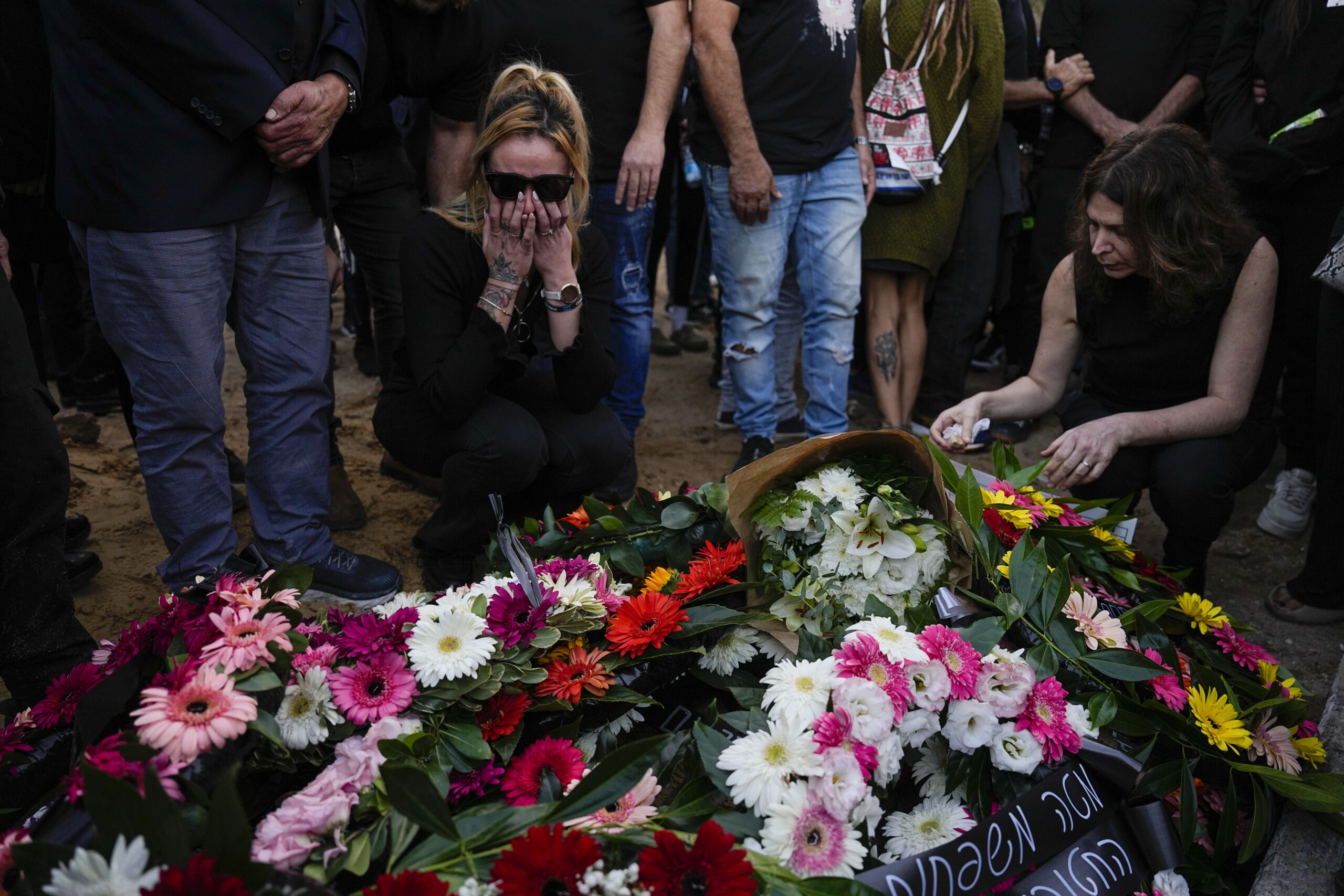 Mourners gather in grief during the funeral of Shani Gabay in the northern Israeli town of Yokneam, Thursday, Nov. 23, 2023. Gabay, 25, was killed with at least 360 Israelis by Hamas militants at the outdoor music festival, among the total 1,200 people killed during Hamas’ bloody Oct. 7 cross-border assault. (AP Photo/Ariel Schalit)
Mourners gather in grief during the funeral of Shani Gabay in the northern Israeli town of Yokneam, Thursday, Nov. 23, 2023. Gabay, 25, was killed with at least 360 Israelis by Hamas militants at the outdoor music festival, among the total 1,200 people killed during Hamas’ bloody Oct. 7 cross-border assault. (AP Photo/Ariel Schalit)This post was originally published on this site be sure to check out more of their content.



